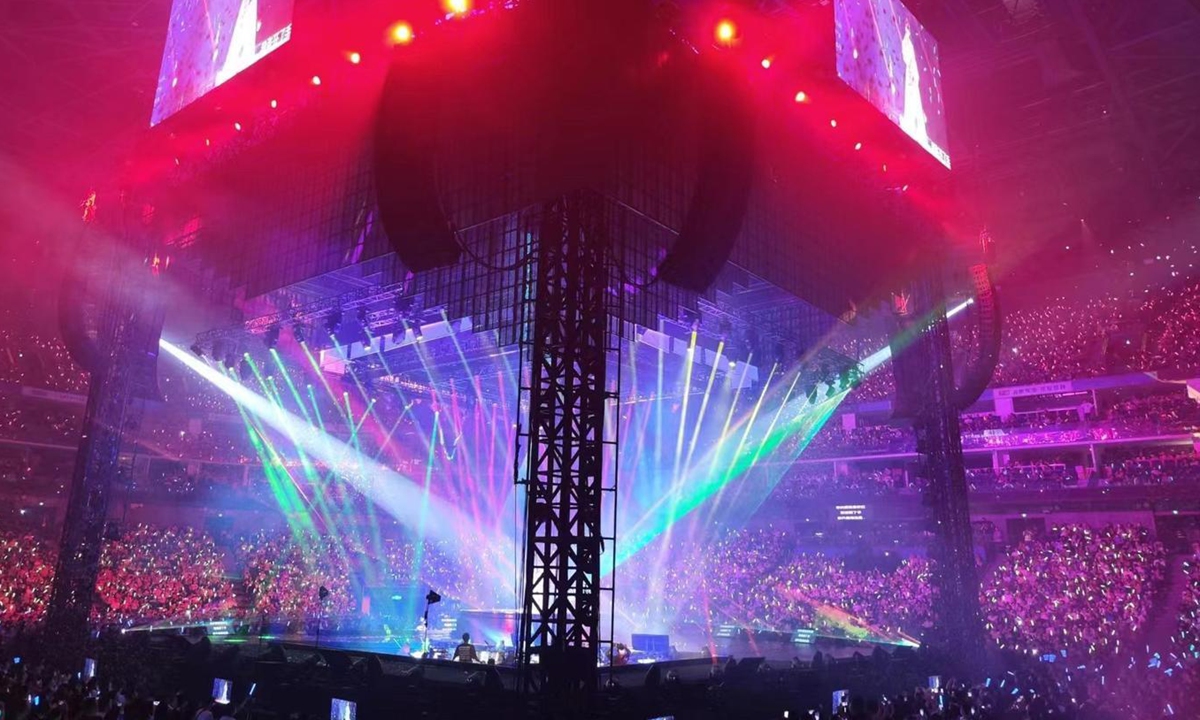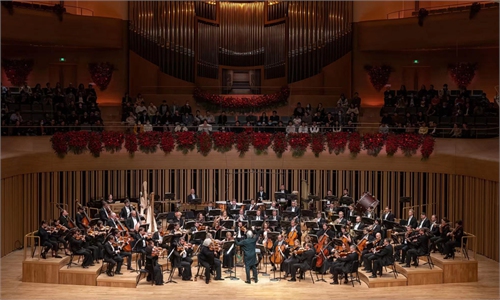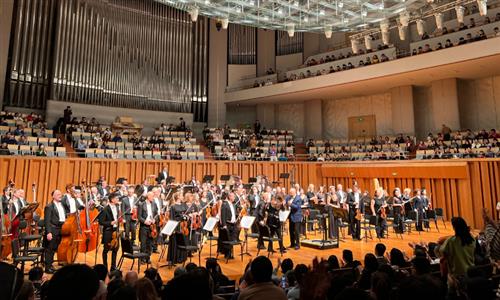ARTS / CULTURE & LEISURE
Concertgoers sue organizer over obstructed view at Malaysian singer’s Shanghai concert

Photo: chengdu.cn
Nine concertgoers have filed a lawsuit against the organizer of Malaysian singer Fish Leong's Shanghai concert in May, alleging that their views were obstructed by pillars without being informed in advance and seeking for a full refund of their tickets and damages. The case was heard on Wednesday at a court in Shanghai's Minhang district, media reported.
The nine plaintiffs, who purchased tickets ranging from 999 yuan to 1299 yuan to attend the concert taking place on May 20 and 21, claimed that their view was obstructed by pillars surrounding the stage, turning their concert experience into a game of "pillar-watching."
Each of them filed a lawsuit against the concert's organizer, the Shanghai Morefun entertainment company. The court decided to consolidate the nine lawsuits for joint proceedings.
According to a lawsuit obtained by Sichuan-based Chengdu.cn, the nine demanded a refund of the original ticket price and a punitive compensation three times the ticket cost. They argued that the organizer had failed to inform them in advance about serious visual obstructions, accusing the defendant of fraudulent behavior and infringement of consumer rights.
During the trial, the plaintiffs' representatives said that the key issue was whether the defendants had informed all attendees in advance about potential obstructions to their view. They argued that obstructing the view, considering the purpose of attending a concert, constitutes a serious breach of contract, and the plaintiffs were deprived of the service they paid for.
The representatives of the defandant said that the use of load-bearing pillars was necessary due to inadequate ceiling support in the venue. They argued that such pillars are common in the industry, and it is common knowledge that certain seating positions may have obstructed views. The defense never intentionally mentioned in the promotional materials that there were no pillars or obstructions.
During the trial, one plaintiff testified that they began to notice the potential obstruction upon entering the venue. When they tried to provide feedback, security prevented them from doing so. After the concert began, the obstruction became unbearable, prompting them to leave the venue halfway through. They reported the issue, and a staff member who initially mentioned the possibility of a refund, but another staff member persuaded them to continue watching, saying that they would receive calls for further communication. However, no calls were received after that.
Other four plaintiffs said that they attempted to voice their concerns but were prevented by security and failed to find staff members.
In the closing statements, the defense argued that the plaintiffs were aware of the extent of the visual obstruction when they chose their seats but stayed for the entire concert, indicating their acceptance of the provided service, the contract was fulfilled, and there was no basis for further refunds.
Both parties acknowledged that, following the concert and with the intervention of the consumer association, the organizer proposed distributing a 200-yuan shopping card as a goodwill gesture to theose audience who had complained.
The organizer's lawyer noted that approximately 100 viewers accepted this offer, emphasizing that the 200-yuan online shopping card was not intended as compensation.
However, the nine plaintiffs rejected the proposal, asserting that regardless of the ticket prices, all of them were offered the same 200-yuan shopping card. They deemed the mediation plan as "unimaginable" and "extremely strong and unreasonable."
The court has not yet delivered a verdict following the conclusion of the trial.
Liu Ying, a Shanghai-based lawyer, told the Global Times on Sunday that "the organizer may illegally infringe on consumers' right to know, and may also breach the contract, making the plaintiffs impossible to achieve the purpose of the contract."
Zhang Yuxia, a public interest lawyer from the Shanghai Consumer Rights Protection Committee and head lawyer for the plaintiffs, expressed the hope that the case would provide guidance on the responsibility of concert organizers in such situations and contribute to the regulation of the industry, according to the report.
China's concert market has seen a boom this year, which also led to the rise in concert-related complaints.
The Chengdu.cn reported that data from the Shanghai Consumer Rights Protection Committee showed that since 2023, more than 7,000 concert-related consumer complaints have been filed in the city. Among them, a significant number are attributed to obstructed views.
Deputy Secretary-General of the commitee Tang Jiansheng said that the committee's stance is not to purely support several consumers. They hope to address widespread concert ticket disputes through judicial rulings.
"Although China is not a case law country, the court's judgment of this hot case could also become a direction and guidance for similar disputes in the future," Liu said.


